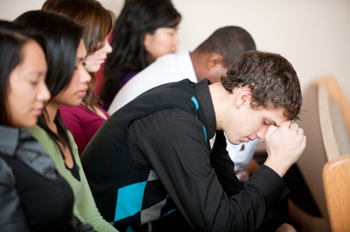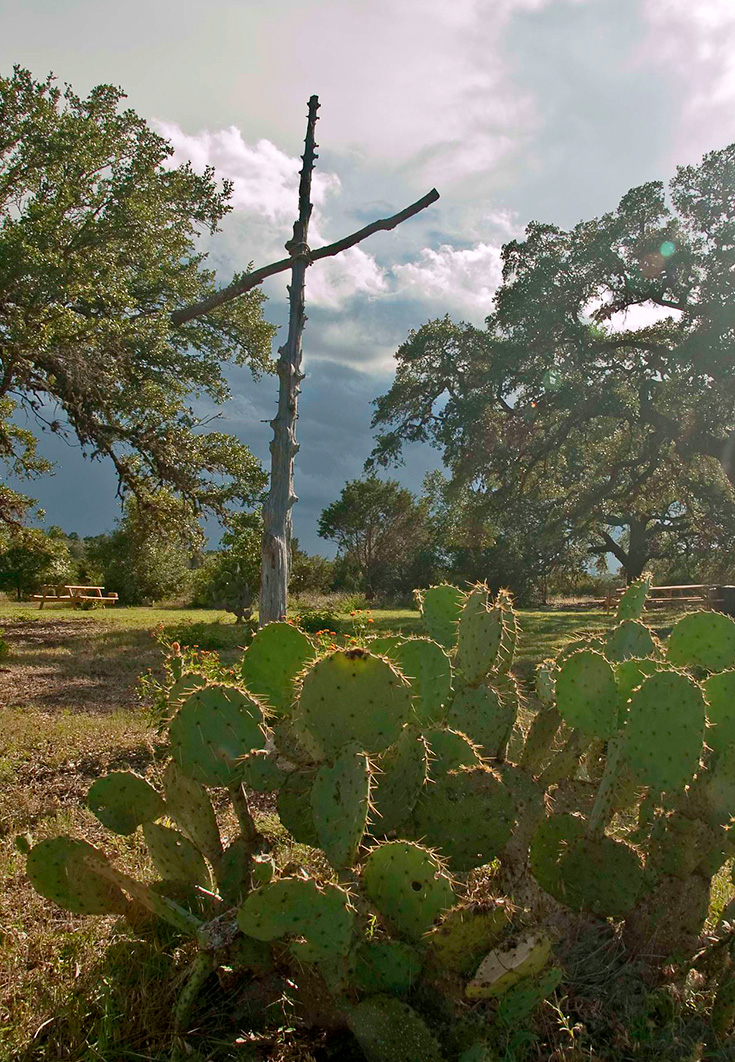Every Sunday during congregational prayer, we pray for people in prison. As Cameron Haney, a member of our congregation, leads us in prayer, we hear the guidance of the Spirit, God’s affirmation of our church’s life with incarcerated people.
For years now, residents of a nearby state prison have been worshipping with us. Another congregant, Paul Munk, is allowed to escort prisoners to religious meetings and regularly brings them to our Sunday service.
So when Cameron prays for prisoners, names and faces flash into our minds, and his request is occasionally followed by a visitor who offers his own petition for God’s sustaining presence in his life behind the razor-wired fence of the correctional facility.
Our ministry with incarcerated men is an example of how, as a pastor, I’ve learned to come to worship ready to listen for God’s leading in the prayers of my sisters and brothers. Their concerns, their petitions, resound God’s longing for restoration and healing, for a world flowing with the peace of Christ. In their words I hear hope, an appeal to the Holy Spirit for a future with God.
I’ve also learned to hear God’s direction in what is absent from our prayers. Several years ago, our church planted a garden at a local transitional housing community for homeless women and children. Church members spent hours digging and planting and composting and watering. Working the soil with the children from the apartments fed my soul. On my way home, I dreamed of church services in the garden, community potluck meals featuring our produce, summers of Vacation Bible School for their children and our children together.
I tempered my vision when I noticed that our Saturday work in the garden did not make it into our prayers during Sunday worship. Soon we found it difficult to organize enough of us to care for the garden. When an energetic group of students from the local university took interest in our efforts at the housing facility, members of our congregation confessed their exhaustion and, with sadness, decided to entrust the student group with the garden. Our time in the soil with the women and children was good work, important work, but just for a season. As the apostle Paul put it: some plant; others water.
My vision for our congregation to grow into that community, for our two communities to cross-pollinate, for us to bloom into a future together -- my plan was not God’s plan for us, at least not now.
Leadership, for me, is a matter of paying attention to prayers and in them learning the grammar of the gospel as God’s people translate the good news for the world with their desires for redemption. As they cry out for the healing of wounds, I learn the language of hope, of how to articulate the reality of God’s reign, of what God’s presence looks like when it happens in our lives and in the world.
In these prayers I hear God’s plan for our congregation.
And I am not the only one who is led in this way. A few months ago, our Mennonite conference ordained a member of our congregation to serve as a community-funded chaplain to the prison. Dave Nickel discerned his call to prison ministry while listening to prayer after prayer resounding with God’s vision of hope for people who are locked up, God’s vision of healing for our carceral society -- a vision for our congregation as we join our lives to incarcerated men.
In his book of sermons called “Seeing in the Dark,” Nicholas Lash describes worship as an education in hope as we are drawn into a world full of longings.
“To be able to hope is to be awake, to be watchful, to be awakened from sleep,” Lash writes. “Christian worship is not a pastime or an interlude from pain. It is, rather, a pedagogy of watchfulness, a disciplining of attention, an education in attentive reverence for God and for the features of his world.”
Prayer is an especially poignant moment of worship, in which, to echo Lash, our attention is disciplined by the features of the world named as in need of divine mercy and justice. As the Spirit focuses our attention through prayer, we are invited to let our feet follow our thoughts, to let ourselves be drawn into relationships of solidarity.
As pastors, as leaders, we are asked to discern the place of the church in the world, as Lash puts it. We seek to discern God’s vision for our communities, yet we do not undertake this task alone. Instead, I’m learning that God’s plan comes to us as we listen to the prayers of our sisters and brothers.
In their petitions for mercy, in their concerns for peace, in their cries for God’s help, we hear fragments of the Holy Spirit’s leading, as we piece together God’s plan for us -- and not for us alone, but for us as we discover how our future involves solidarity with the oppressed and humiliated, a future in which God draws us into relationships of communion across the walls that threaten to keep us apart.
We pray our way into God’s vision for a world renewed, God’s direction for our church. We align our plan with God’s plan when we heed the wisdom of God’s people, in whose petitions we hear the breath of the Holy Spirit, whispers of divine inspiration.








